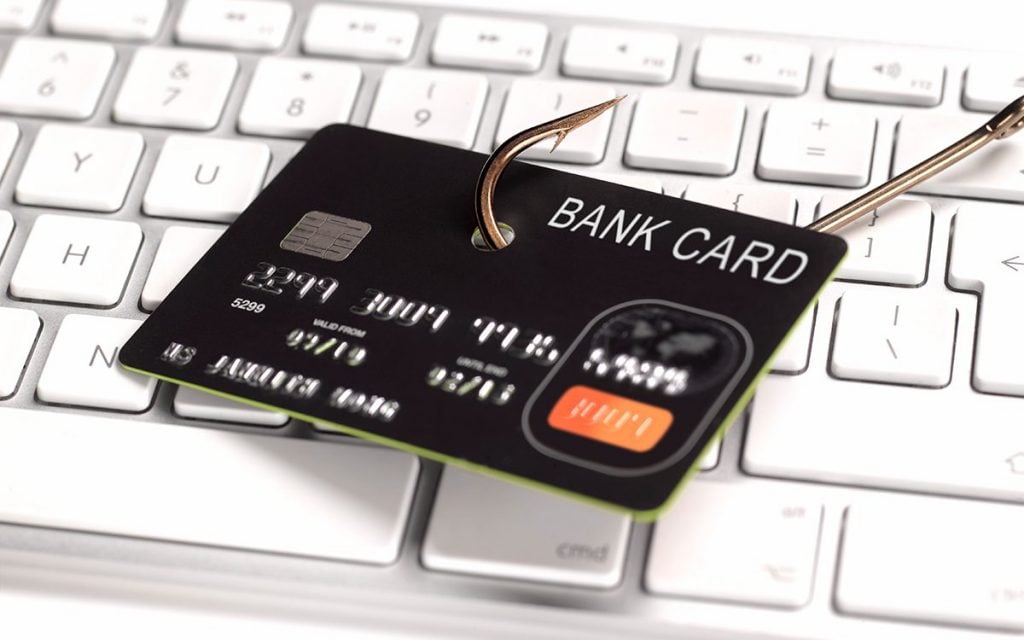Domains
How to choose a domain name
Choosing the right domain name is crucial in establishing your online presence. It’s often the first interaction potential customers have with your business, and it can significantly impact your brand’s visibility and credibility.
We will walk you through the key considerations when choosing a domain name, from understanding its importance to avoiding common pitfalls. Whether you’re launching a new website or reconsidering your current domain, you’ll find practical advice to help you make an informed decision. Let’s explore how to choose a domain name that will set your business up for online success.
Take a look at this page if you’re interested in learning more about domain names before choosing the right one.
Why your domain name matters
Your domain name is more than just a web address; it’s the digital foundation of your business. As the first thing many potential customers will encounter, it plays a crucial role in shaping their perception of your brand.
The right domain name can:
Studies show consumers believe a brand-matched domain is more trustworthy than generic alternatives. Moreover, domain names that are easy to spell and remember can lead to up to 25% more direct traffic to your website.
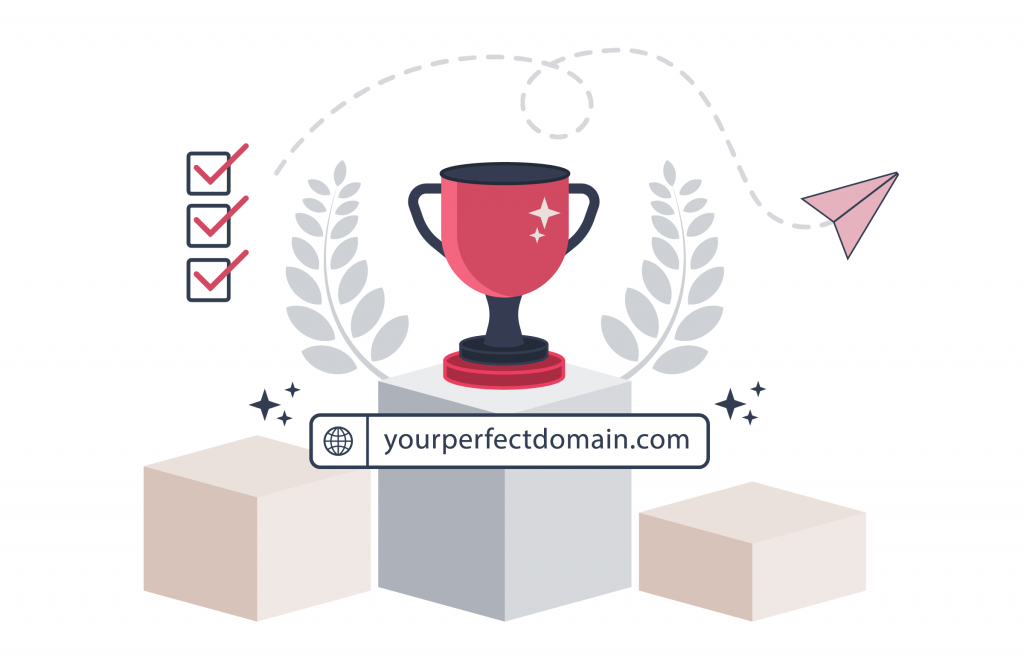
When comparing domain names, the difference is clear:
Good Domain
shop.co.za
techguru.com
Poor Domain
buy-stuff-here-now-123.net
best-it-solutions-2024.biz
A strong domain name sets the stage for your online success. Let’s explore what makes a domain name effective.
Elements of an effective domain name
Now that you understand the importance of a good domain name, let’s break down the characteristics that make a domain name stand out:
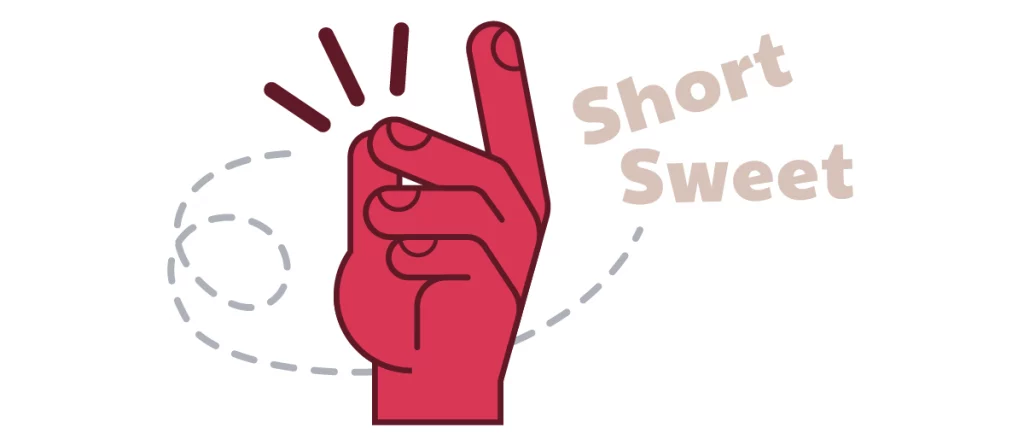
Short and simple

Easy to remember and pronounce
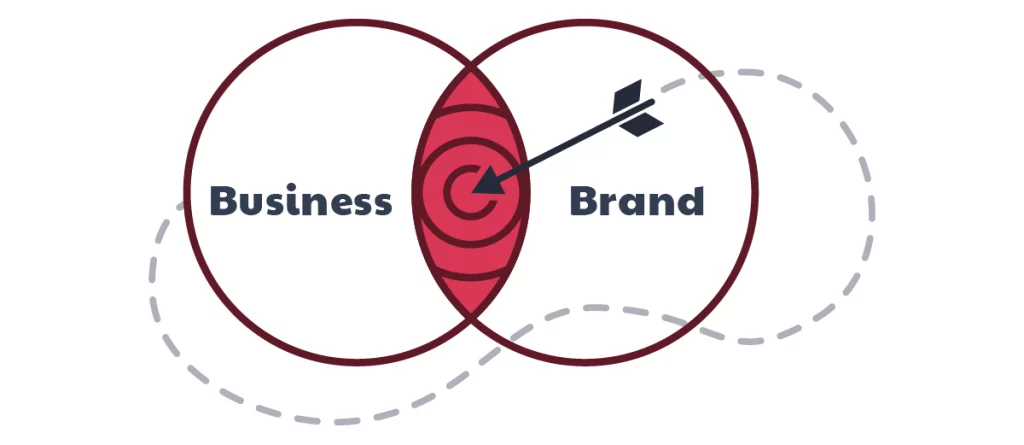
Relevant to your business or brand

Free of numbers or hyphens
Keep your domain name short, ideally under 15 characters. Doing so will make it easier for customers to type and remember. Avoid using numbers or hyphens, as these can confuse users and make your domain harder to remember.
Your domain should be easy to pronounce and spell, which will help with word-of-mouth marketing and ensure customers can find you easily online.
Relevance is key. Your domain name should reflect your business, brand, or the products and services you offer. A relevant domain name assists in brand recognition and can even boost your Search Engine Optimisation (SEO) efforts.
Remember, a great domain name is an investment in your brand’s future. Choose wisely, as changing your domain later can be costly and disruptive to your business.
Let’s look at domain extensions and how to choose the right one for your business.
Choosing the right domain extension
Selecting the appropriate domain extension is crucial for your online identity. Here’s a breakdown of standard options:
Generic top-level domains (gTLDs)
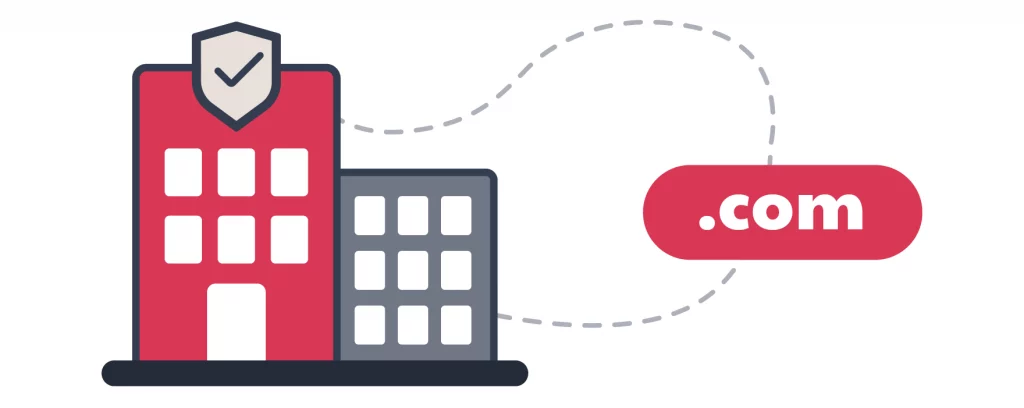
.com
Ideal for commercial entities
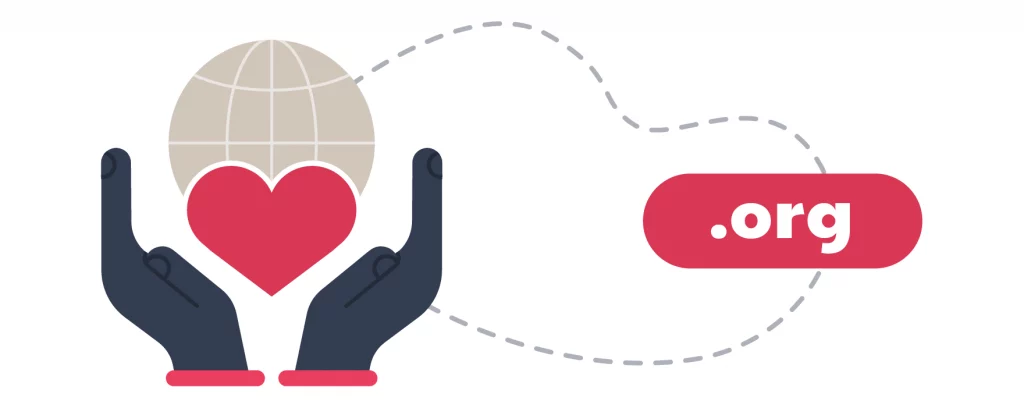
.org
Typically used by non-profit organisations

.net
Often chosen by IT-related businesses
Country code top-level domains (ccTLDs)
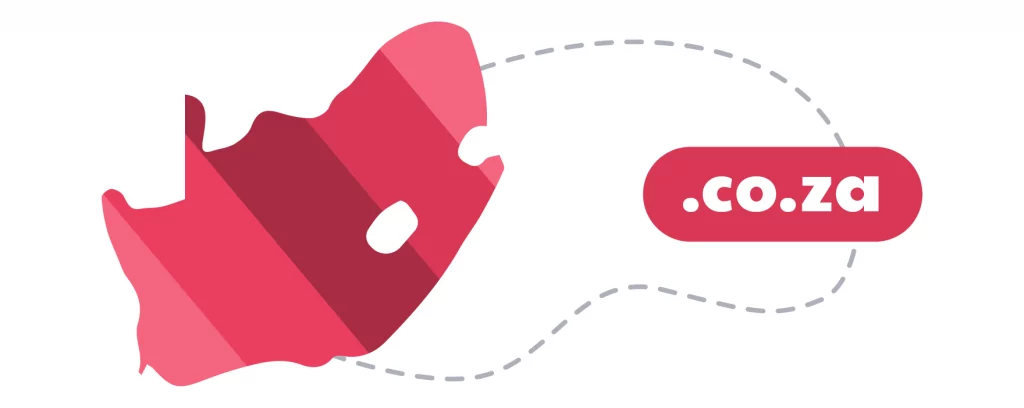
.co.za
Specific to South African websites
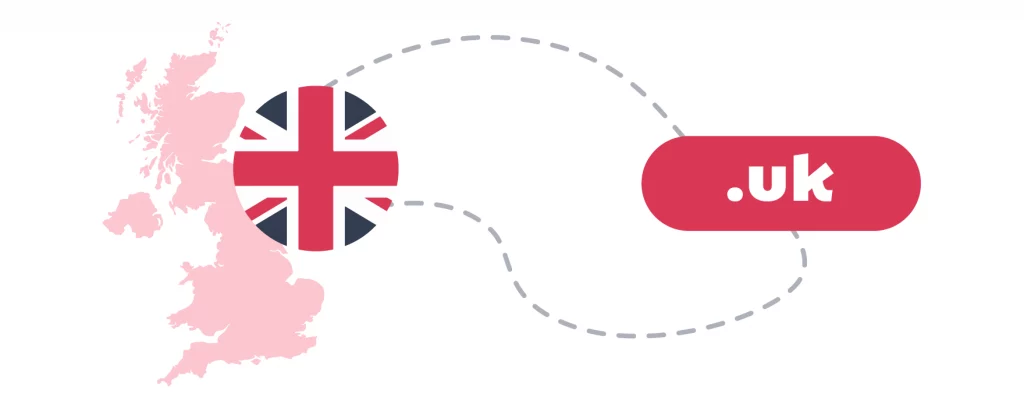
.uk
For United Kingdom-based sites

.africa, .durban, .joburg, .capetown
Specific to city websites
Industry-specific extensions
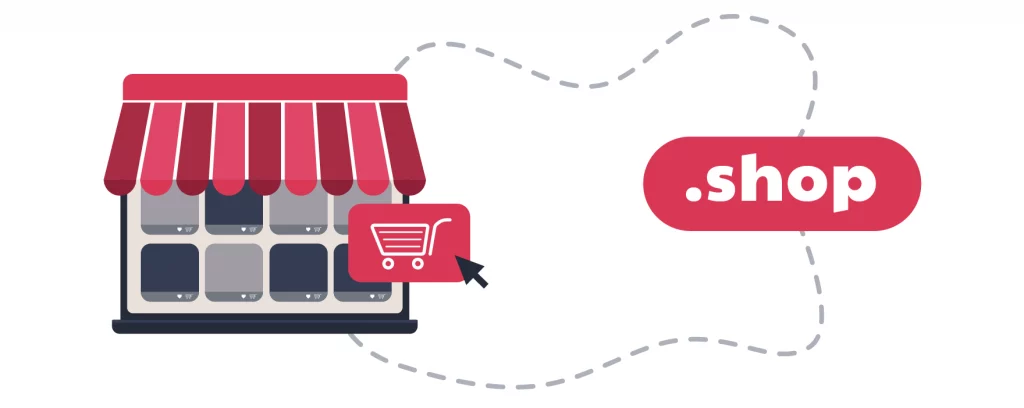
.shop, .online
Perfect for e-commerce businesses
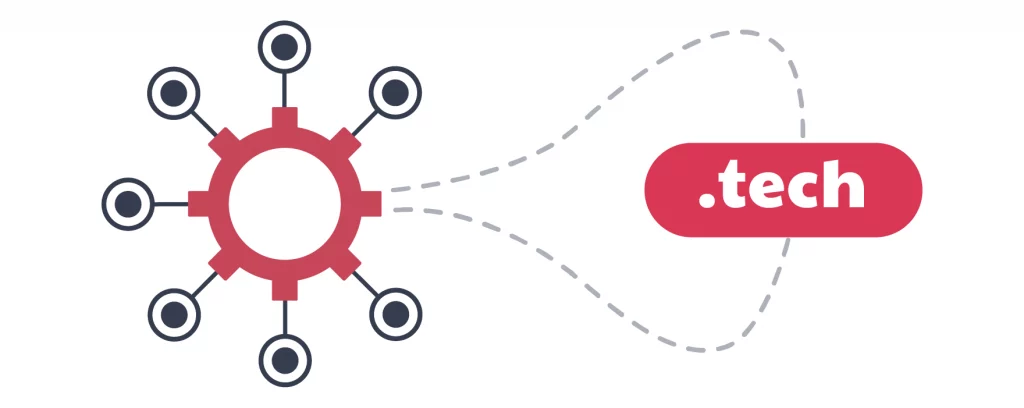
.tech
Suitable for technology companies
Your choice of extension can impact both SEO and user perception. While .com remains the most recognised globally, a country-specific extension like .co.za can help target local audiences and improve regional SEO.
Consider your target audience and business goals when selecting an extension. If you’re focused on the South African market, a .co.za domain could be ideal. For international reach, .com might be more appropriate.
As you contemplate extensions, it’s advisable to consider potential legal implications.
Avoiding legal issues: trademark considerations
Selecting a domain name isn’t just about creativity but also legality. Trademark infringement can lead to costly legal battles and losing your chosen domain.
To avoid these pitfalls:
Conduct thorough trademark searches
Avoid using trademarked names or close variations
Be cautious with geographic terms and personal names
Warning signs of potential trademark issues:
Using a well-known brand name or slogan
Incorporating a competitor’s name
Choosing a name very similar to an existing trademark
Resources for trademark checking:
Companies and Intellectual Property Commission (CIPC) for South African trademarks
World Intellectual Property Organization (WIPO) for international trademarks
Remember, while this guidance is helpful, it’s not a substitute for legal advice. If in doubt, consult with a legal professional specialising in intellectual property.
With legal considerations in mind, let’s focus on tailoring your domain to your target audience.
Local vs global: tailoring your domain to your audience
Your domain strategy should align with your target audience and business goals. Let’s compare local and global approaches:
Local domain strategy
Uses country-specific or city extension (e.g., .co.za)
Target specific geographic area
Improves local SEO
Builds trust with local customers
Global domain strategy
Uses generic extension (e.g., .com)
Aims for international reach
Provides flexibility for expansion
Appeals to a diverse audience

For businesses focusing on the South African market, a .co.za domain can significantly boost local SEO and build trust with domestic customers. However, if you have international aspirations, a .com domain offers global recognition and scalability.
You can even further localise your online presence using city-specific domains like .capetown, .durban, or .joburg. These domains are ideal for companies serving specific cities and help target local customers more effectively.
When choosing your domain, it’s important to consider your long-term goals. Are you planning to expand internationally, or is your focus primarily on dominating the local market? Your answer to these questions will guide your domain choice, ensuring it aligns with your business’s future direction.
Now that you’ve defined your audience and geographical focus, you can search for your ideal domain name. Let’s explore the tools and techniques for finding the perfect domain name.
Domain name search: tools and techniques
Finding the right domain involves creativity and the right tools. Here’s how to conduct an effective domain search:

Brainstorm ideas
Start by brainstorming names that resonate with your brand, products, or services. Consider what makes your business unique and think of names that reflect that distinctiveness. Jot down a list of potential names, including variations and synonyms, and think about how they might appeal to your target audience.
Use relevant keywords
Once you have a few ideas, use a domain search tool to check the availability of each option. You can quickly tell if your desired domain is available or not.


Consider variations
If your first choice is already taken, don’t be discouraged. Consider slight variations of your original idea, such as adding a keyword, using a plural form, or adjusting the word order. Think about using different domain extensions as well, like .net, .org, or country- or city-specific ones (e.g., .co.za or .capetown if you run a local business in South Africa).
Use a domain name generator
If you’re struggling to come up with ideas or your preferred domain is taken, a domain name generator can be an invaluable tool. These generators combine your keywords or business name with creative suggestions, helping you discover unique and brandable options you might not have considered.
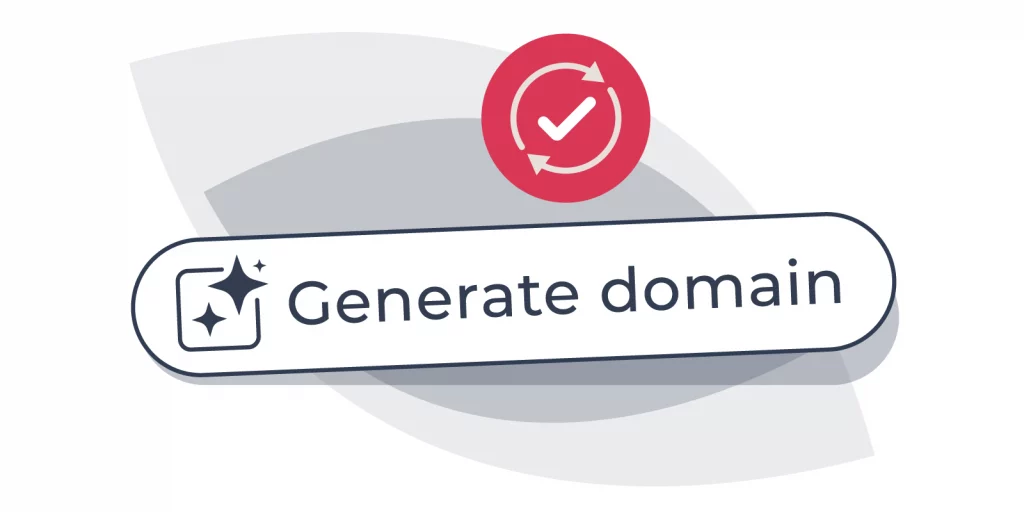
What to do if your domain name is taken
If your preferred domain name is unavailable, you can choose a similar name by adding prefixes, suffixes, or geographic identifiers. Alternatively, consider domain extensions such as .co.za for local businesses or specialised extensions like .org for non-profits.
Another option is tracking when domains expire using WHOIS lookups or monitoring tools, though most renew automatically. A faster solution involves contacting the current owner through WHOIS details or using domain auction platforms to make a purchase offer.
Once you’ve found your new domain name, register your chosen alternative quickly, as domain registration operates on a first-come, first-served basis. Whether you select an aligned name, a different extension, or acquire an existing domain, the key is to maintain brand recognition whilst ensuring your web address remains memorable for visitors.
Use our domain search tool to see if your preferred domain name is available.
Let’s find your perfect domain
Common questions when choosing a domain name
Here are answers to some frequently asked questions about domain names:
At xneelo, we’re experts in all aspects of domain management. From registration to ongoing support, let us help you maximise your online presence.





